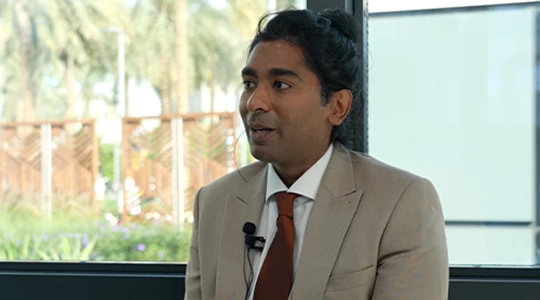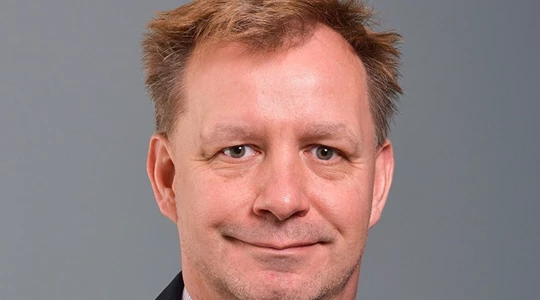Istanbul Pushes Ahead With IPO Plan for $10 Billion Gas Grid
(Bloomberg) -- Istanbul authorities are reviving a plan to privatize the city’s gas grid in what could be one of Turkey’s biggest ever initial public offerings.
An IPO of the Igdas gas grid is moving forward, according to Neslihan Vural, head of financial services at the Istanbul Metropolitan Municipality. She estimated the company could be valued as high as $10 billion once increased gas tariffs are approved. The government aims to gradually reduce its stake to less than 20% from more than 90% now, she added.
“I am pro-privatization,” Vural said. “The municipality should eventually return to pure municipal works.”
Igdas has long been the crown jewel of Istanbul’s privatization list, though an attempt at an initial public offering in the early 2010s failed. Now that Turkey’s opposition party has a majority on the Istanbul council, local officials see an opportunity to push ahead with fundraising plans to build infrastructure and strengthen their grip on the city.
While a city council directive permitting the IPO still stands from the first attempt, there’s legal work to be done and the company’s charter must be adjusted before authorities can hire investment banks, Vural said. The company had revenue of 35.8 billion liras ($1.1 billion) in 2022.
Among other potential stock listings are car-park operator Ispark, water bottler Hamidiye, bread maker Halk Ekmek and others, according to Vural. Ispark could come after Igdas, she said.
Istanbul has a raft of projects that need funding. They include building a second waste-to-energy power plant, improving subway lines and buying 10,000 taxis to boost the current fleet by 50%, Vural said.
Election Flashpoint
Financing for Turkey’s big cities was a flashpoint in the March local elections. Ozgur Ozel, the head of the opposition Republican People’s Party, or CHP, accused President Recep Tayyip Erdogan of withholding state cash as punishment for urban voters’ perceived disloyalty. The government denies the allegation.
Now, Treasury and Finance Minister Mehmet Simsek is seeking to restore confidence in the Turkish economy, holding international investor meetings to tout the nation’s return to more orthodox policies. Simsek signed off on Istanbul’s $715 million sale of unsecured green bonds in November and is expected to approve financing for four metro projects including a $925 million new line, Vural said.
The municipality plans to raise €1 billion ($1.1 billion) this year by tapping capital markets and international financial institutions like the European Bank for Reconstruction and Development and commercial banks, Vural said.
As well as planning ESG-friendly bond sales, Istanbul aims to raise $225 million via an international debt offering. Under the deal, a special purpose vehicle set up by Bank of America Corp and London-based BancTrust Investment Bank Ltd. will provide a loan after selling bonds in foreign markets, Vural said.
©2024 Bloomberg L.P.
KEEPING THE ENERGY INDUSTRY CONNECTED
Subscribe to our newsletter and get the best of Energy Connects directly to your inbox each week.
By subscribing, you agree to the processing of your personal data by dmg events as described in the Privacy Policy.
More utilities news

China Greenlights Massive Offshore Wind Project for Shanghai

Germany Accused of Hoarding Gas Meant for Czech Republic

Sabesp Privatized in Year’s Biggest Latin America Stock Deal

Wildfires Erupt in Canada Crude Patch in Threat to Oil Sands

SK Group to Merge Energy Units to Help Ailing Battery Business

UK Water Watchdog Now Probing All Utilities on Sewage Spills

Enersol signs agreement to acquire a majority stake in NTS Amega

The World’s Power Grids Are Failing as the Planet Warms

Audi and BP partner for Formula 1 entry in 2026

European Gas Prices Rise After Global Supply Risks Resurface

CSIS: long-term LNG demand to reshape global export capacity growth

More women in energy vital to the industry’s success

India’s energy sector presents lucrative opportunities for global companies

Oil India charts the course to ambitious energy growth

Maritime sector is stepping up to the challenges of decarbonisation
Partner content

Navigating the trading seas: exploring the significance of benchmarks

Back to the Future(s): the best commodities benchmarks are still physically settled

Ebara Elliott Energy offers a range of products for a sustainable energy economy

Essar outlines how its CBM contribution is bolstering for India’s energy landscape




































